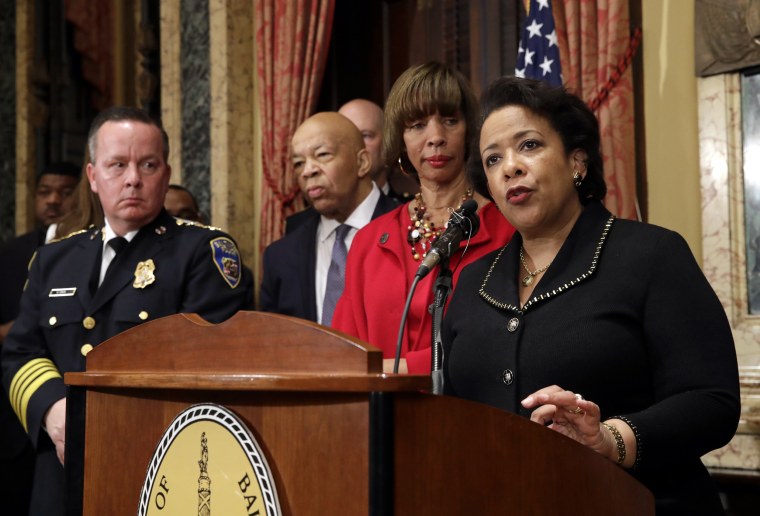Baltimore has agreed to make sweeping changes to its police department in order to settle federal claims that officers routinely violated citizen's rights.
The agreement, announced Thursday, came in the waning days of the Obama administration, whose aggressive approach to police reform is expected to give way to a more hands-off approach under Donald Trump. The court-ordered reforms, still subject to approval by a judge, are designed to live on under a new administration.
The case stems from the April 2015 death of Freddie Gray while in police custody, which set off riots in the city. Investigators from the Division of Civil Rights found a pattern of unconstitutional stops, searches and arrests of black residents, and the use of unnecessary force against them. That systemic misconduct had all but eliminated the public's trust in police, the investigators found.
Related: Justice Department Finds Baltimore Police Practices Are Racially Biased
The investigators traced the problems to a 1990s-era crime-fighting strategy aimed at the drug trade. Officers conducted the crackdown despite subpar training, policies and supervision, investigators said.
The Civil Rights Division, as is common in such cases, threatened to sue the city unless it agreed to reform itself. The city agreed, signing a consent decree that will put the city under a court-appointed monitor. Such deals typically last years, and cost many millions of dollars.
“Under the consent decree, the city and BPD will implement comprehensive reforms to end the legacy of Baltimore’s ‘zero tolerance’ policing,” Vanita Gupta, head of the Civil Rights Division, said in a statement. “In its place, BPD will empower its officers to engage in proactive, community-oriented policing."
Baltimore Mayor Catherine Pugh — whose predecessor, Stephanie Rawlings-Blake, requested the federal investigation — said the reforms would "ensure officers use appropriate de-escalation techniques" to reduce the use of force, and transport prisoners more safely. The statement was a direct nod to Gray, who died of injuries sustained while riding in the back of a police van.
"We now require cameras in those vans," Pugh said.
Police Commissioner Kevin Davis said the reforms would help officers.
"I have no doubt that when we eventually emerge from this consent decree, we will be better crime fighters and have a greater, more respectful and trustful relationship with our community," Davis said, according to the Associated Press.
The division's investigators examined five years of police data and found more than 300,000 pedestrian stops for minor offenses and with minimal or no suspicion of lawbreaking, all concentrated in black neighborhoods. Less than 4 percent of the sidewalk stops resulted in arrests.
Black drivers suffered similarly: they were disproportionately pulled over for traffic stops and searched for drugs, even though officers found illegal substances more often in searchers involving white drivers.

